Schistosomiasis Outreach Shirati
What are we talking about?
Lake Victoria. The largest lake in Africa and of vital importance to the Ugandan, Kenyan and Tanzanian inhabitants of its shores. The same goes for Shirati. Men catch tilapia, nile perch and sardines in Lake Victoria, children learn how to swim and women wash clothes. This puts them at risk, however, of schistosomiasis, one of the most deadly ‘Neglected Tropical Diseases’.
Schistosomiasis is caused by a parasite, which thrives on the shores and easily penetrates the skin, to make permanent residence in the liver. Initially, patients have little to no complaints, but in 10-15 years schistosomiasis irreversibly damages the liver. Due to this lack of symptoms, patients generally present at a late stage, with complaints like ascites, blood in the stool or vomiting of blood.
Partners and local need
As with other projects by Stichting Shirati, S.O.S. was born from local need. Our colleagues from small health posts among the lake contacted us for help when an alarming number of new, severe schistosomiasis cases presented themselves. From the help programme initiated by the hospital we initiated this project. The project is a collaboration with hospital personnel and local NGO Maji Safi, which is focused on health education. Since 2023, BMU officers, who are representatives of the fishermen, are also recruited as ambassadors of the project to increase interested of beneficiaries. This has led to an exponential increase in participants. In 2024 the daily operations are fully managed by our local colleague Nkaina Walter.
How often does it occur?
Research in Shirati’s district shows that 85-97% of all inhabitants are infected with schistosomiasis. Prevention of the disease is difficult, because the population is dependent on the lake for survival.
What are we doing about it?
Luckily, treatment is simple: a couple of tablets of ‘praziquantel’ every 6-12 months is adequate protection of complications, even if patients are re-infected.
In the past, the local government has therefore dispensed praziquantel to all school-going children. Sadly, this program was discontinued, while other risk groups like fishermen were never targeted in the first place. Praziquantel is available in all drug stores, but costs patients the equivalent of a day’s work (1-2 euro). In addition, it is little known that praziquantel should be taken on a full stomach, to avoid side effects. These can cause people to distrust praziquantel as a drug. Stichting Shirati organizes ‘outreach’ programs, during which a team travels to fishing villages to provide health education and free praziquantel.
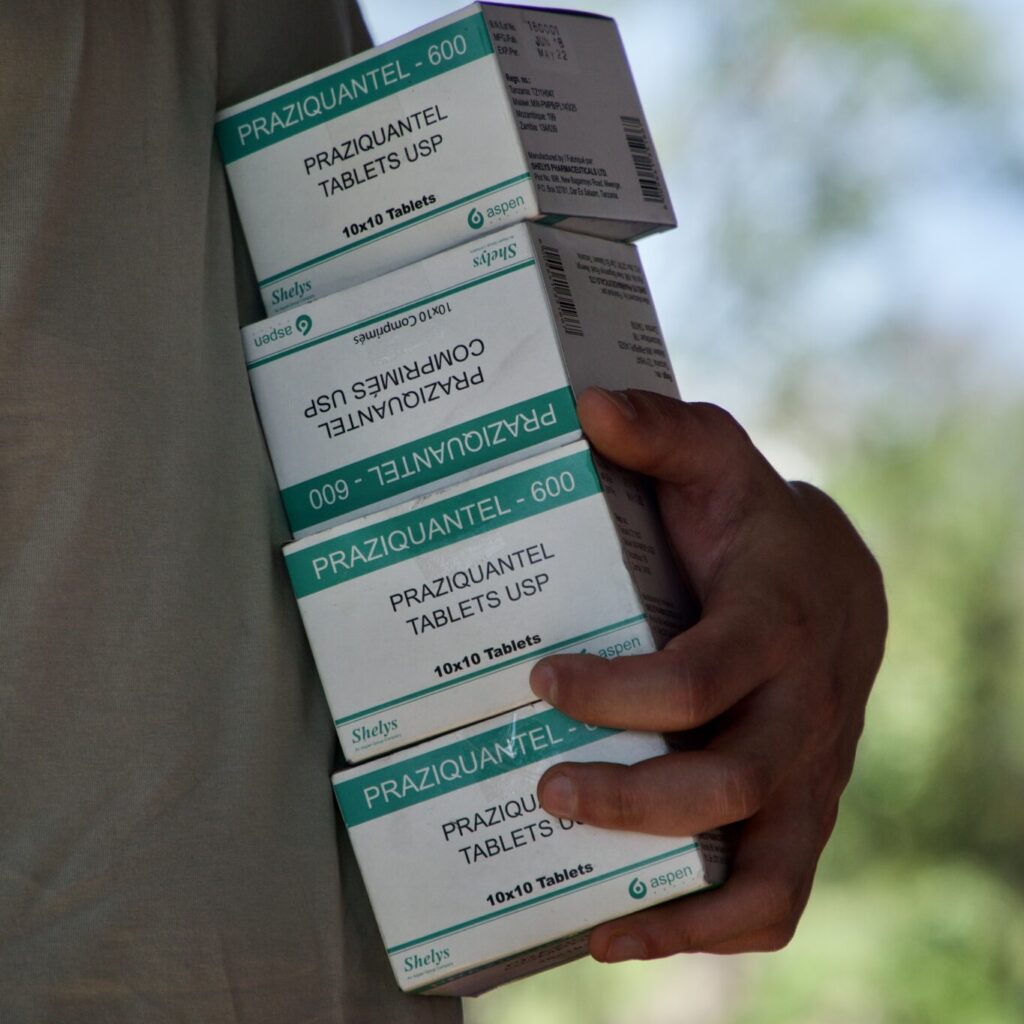
What have we accomplished so far?
Since 2022, various editions of S.O.S have taken place and the project has expanded to four villages along the lake: Bubombi, Sota, Nyamagaro, and Kibuyi. Every six months, we return, and every six months, we see the project grow exponentially: from 300 participants in the first edition to 2700 participants per half-year now. This means that the vast majority of villagers are fully protected against the severe consequences of schistosomiasis.
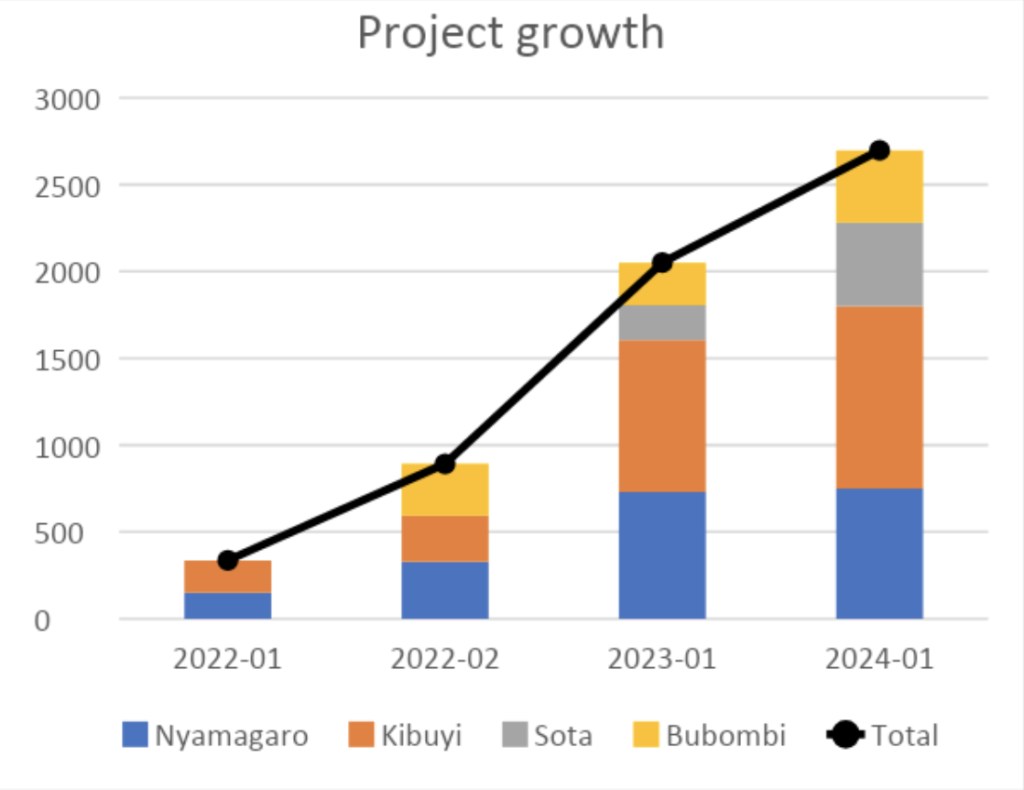
Future goals
We’re planning new ‘outreach’ programs every 6 months in these villages. Reaching as many people as possible, in other villages along the lake as well, requires money. This is used for:
- Procurement of praziquantel
- Food & water for patients, to allow for safe ingestion of the tablets
- Costs of transport & personnel of the outreach team
The costs of the program are approximately €1 per participant. For that one euro, this person is fully protected against the disease. In 2024, we aim to expand to 4 new villages and will provide transportation services for participants who cannot easily come to the outreach location themselves. This way, we can also link multiple villages together and reach an entire area with a single outreach effort.
Furthermore, we want to improve the training of BMU officers and involve them even more so that they can act as guardians of the fishing population.
Are you interested in this project? Then please don’t hesitate to contribute to it, by clicking the donate button below!
Thank you!
Have a look at our other projects
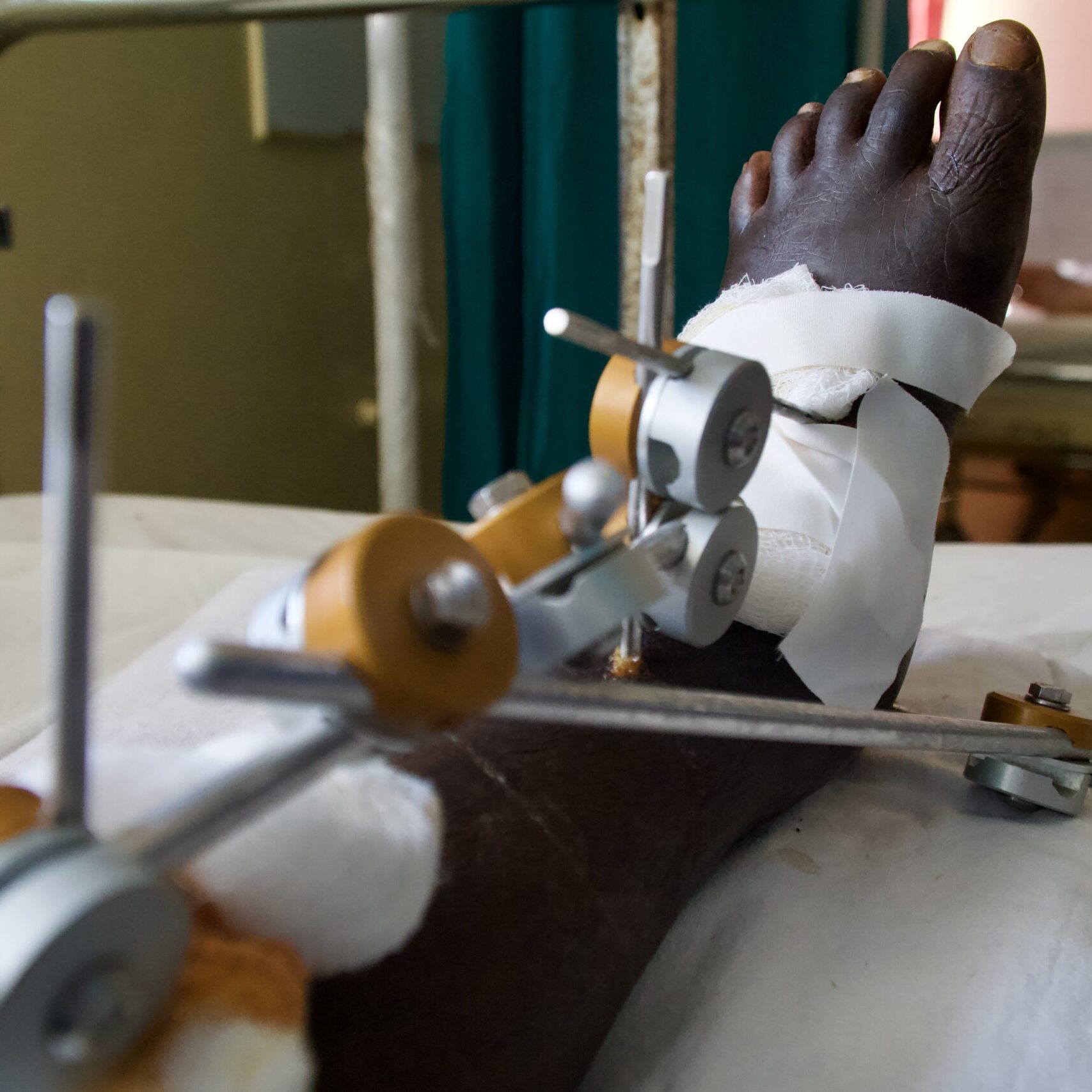
Bonesetter Project
Collaborate with traditional bonesetters to cure broken bones
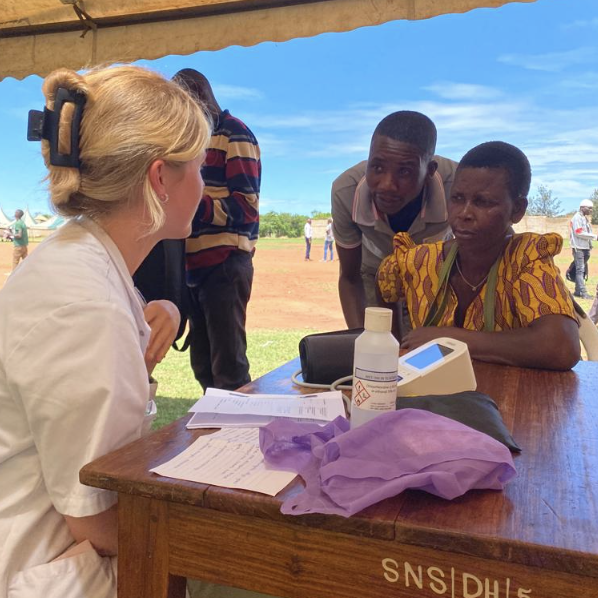
Healthy Hearts Project
The detection of patients with cardiovascular diseases before they become seriously ill
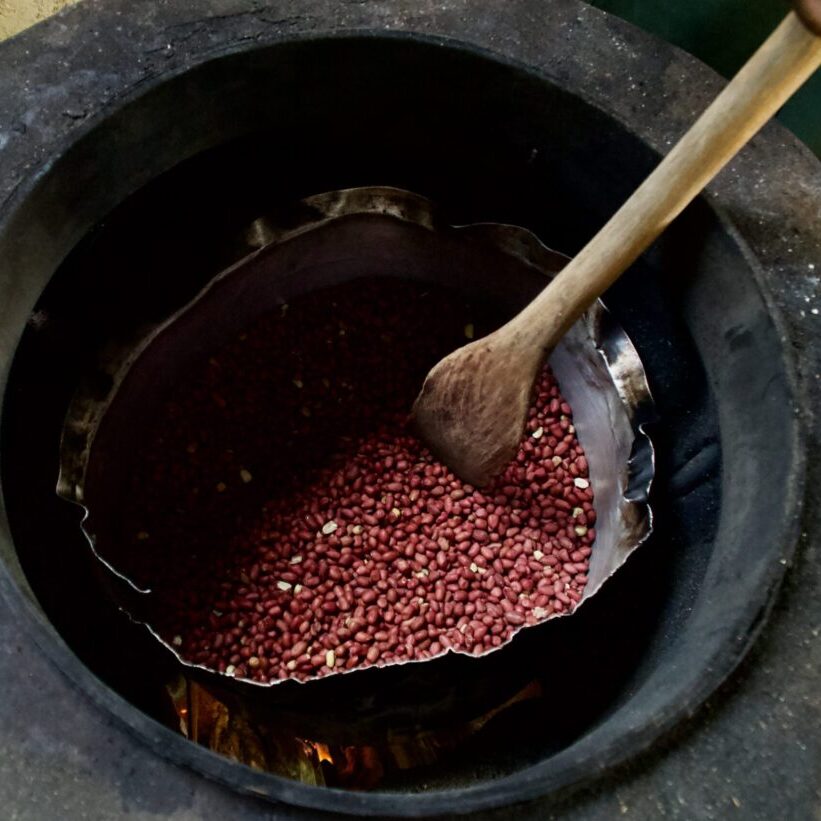
Shirati Peanut project
Local production of special peanut butter to combat malnutrition
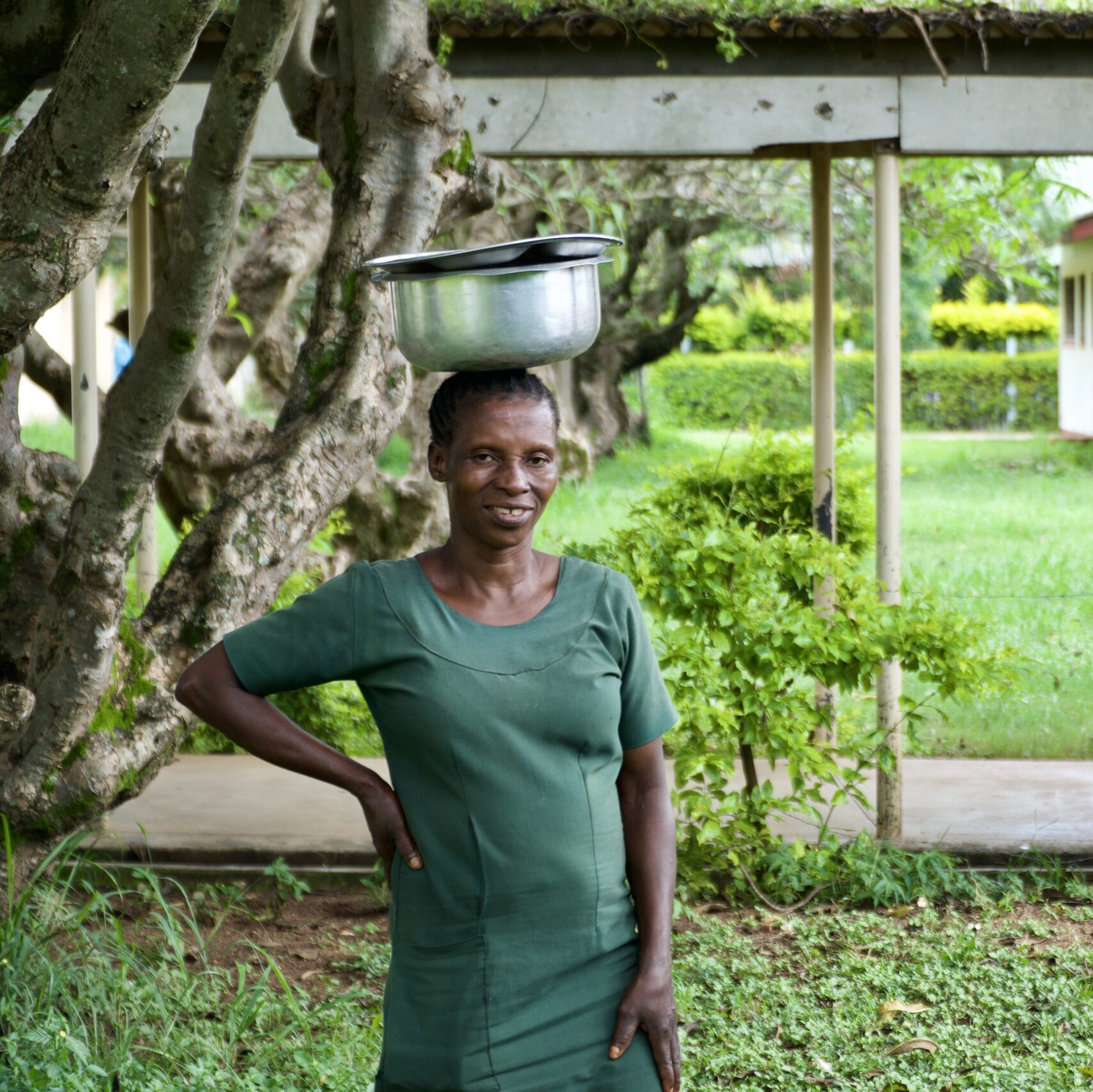
Shirati Food Program
Every day, a healthy free meal for all patients

